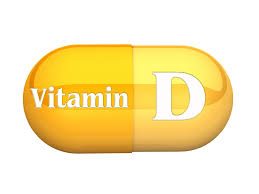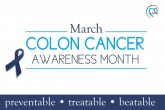
Do you know that it’s almost impossible to get enough vitamin D through your diet because very few foods contain it? The best way to get the essential vitamins, minerals and other micronutrients your body needs to function, is by eating a wide variety of healthy foods. Vitamin D however, is the exception.
Your food choices for vitamin D are limited to egg yolks, beef liver, and fatty fish like sardines and salmon. Also dairy products or orange juice fortified with Vitamin D. They all contain only small amounts of vitamin D. You’d have to eat 17 egg yolks or about 34 sardines or drink more than one and a half liters of fortified milk to get the daily recommended amount of vitamin D!

Why you need Vitamin D?
Vitamin D is vital because it helps your body absorb calcium from your digestive tract. Your body needs calcium to build and maintain healthy bones. You can’t absorb calcium without vitamin D. It’s also a key to the proper functioning of your muscles, nerves and immune system.
Vitamin D is “the sunshine vitamin”. When exposed to direct sunlight, the sun’s ultraviolet rays set off chemical reactions in your skin that produce a pre-vitamin D. Pre-vitamin D enters your blood, and then your liver and kidneys change it to the active form, vitamin D-3.
The time of day, climate, latitude and your skin color all determine the amount of vitamin D your skin makes. People who live in sunny, warm places make more Vitamin D. Dark skin such as in Africans needs more sunlight than that of Caucasians to produce vitamin D.
What is Vitamin D Deficiency?
When your vitamin D blood level is lower than the recommended range, you have Vitamin D Deficiency. A low level of vitamin D is linked to a variety of conditions because vitamin D works at the cellular and genetic level in many areas of your body.

Current research suggests that regularly getting the right amount of vitamin D can significantly reduce your risk for osteoporosis (thin, brittle bones). Low vitamin D is also linked to repeated falls in the elderly, chronic pain, cardiovascular disease, high blood pressure, diabetes, multiple sclerosis, rheumatoid arthritis, and even some cancers.
It doesn’t mean that low vitamin D causes these conditions, or that you can prevent or treat them by loading up on vitamin D supplements. It only means that in addition to other good health practices, a healthy level of vitamin D can lower your risk for these conditions.
Vitamin D deficiency in children causes rickets, a disease in which bone tissue doesn’t form properly because of a lack of calcium. Children with rickets have soft bones and skeletal deformities. Breast milk is low in vitamin D, so it’s essential that breastfeeding mothers get a lot of sunshine, eat healthily and take vitamin D supplements.

How do you know if you have Vitamin D Deficiency?
Vitamin D Deficiency has few symptoms. You may have vague muscle pain and aches, and that’s about it. I recommend screening for people at risk of Vitamin D Deficiency. This includes:
- The Elderly who don’t get regular exposure to sunlight and have trouble absorbing vitamin D
- If you have a diagnosis of osteoporosis (thin, brittle bones)
- Black and Hispanic individuals (because of dark skin)
- Patients with medical conditions affecting absorption from the digestive tract
- Obese persons
- People with conditions affecting the metabolism of vitamin D and phosphate such as chronic kidney disease
A blood test checking the level of the active form of Vitamin D is the best screening tool.
Recommended Dietary Allowances (RDA) for Vitamin D

You may need to take up to 1,000 to 2,000 IU per day of vitamin D from a supplement to help you achieve an adequate blood level of vitamin D. More than 5,000 IU per day is unsafe unless it is for treating vitamin D Deficiency.
If you’re at risk of Vitamin D Deficiency, taking a daily vitamin D supplement in addition to a healthy diet will likely help improve bone health and other areas that benefit from healthy levels of vitamin D. Talk to your doctor before beginning any dietary supplements.

